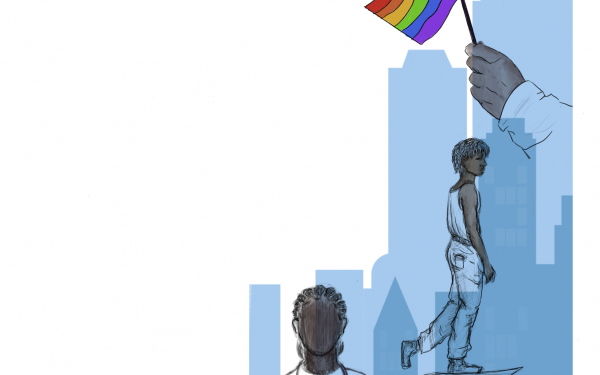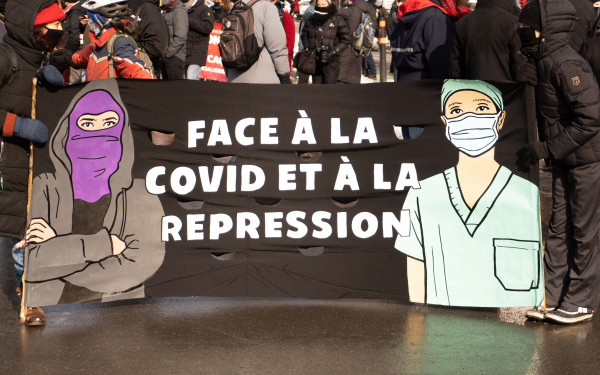“Invest in community, not police”
Defund the Police’s second festival as a place for celebration of community storytelling
Montreal’s Defund the Police Coalition and the Quebec Public Interest Research Group held their second Defund the Police festival on Sept. 17, bringing educational, artistic and community storytelling together in the name of justice and community empowerment.
“When was the first time you stood up for yourself?”
This was LGBTQIA2S+ performance artist and activist Mikki Bradshaw’s prompt in their ethical community storytelling workshop at the festival. A crowd of all ages gathered in the grassy field at Parc Vinet, Little Burgundy around Bradshaw. With decades of experience in performance arts and LGBTQIA2S+ advocacy, their workshop was designed for ages ten and up to learn how to use their voices creatively and impactfully.
“[Teaching younger minds storytelling] allows them to realize, not only do I have a voice; it’s important to use it, and what I think matters,’” Bradshaw said.
Bradshaw’s workshop underpinned one of the festival’s main purposes for gathering: to celebrate strength in coming together as a community and learning how to stand up for oneself by telling your stories, especially in the face of injustice.
“When people think of police, they think of authority,” said Bradshaw. “A lot of people are afraid to speak up to authority. A lot of people are shunned and shamed. And so, storytelling does give that fundamental basis.”
Having worked over 15 years in street intervention, festival organizer Jessica Quijano has seen the overwhelming need for alternatives to the police for social crises.
“The majority of police killings are when someone is going through a mental health crisis,” said Quijano. “We shouldn’t be sending police to those kinds of situations.”
Quijano wants to see more investment in preventing people from falling into situations where they are at risk of police being called to intervene in the first place. “Police actually don’t prevent anything,” she said. “They’re just responding."

Founded in 2020 after the killing of George Floyd in the United States, the Montreal Defund the Police Coalition advocates for a new vision of collective safety and an end to police racism. Some of their demands include decreasing the city’s police budget by 50 per cent and reinvesting this money into community programming, arts and education in the same communities that receive the most racialized police surveillance – notably Black and Indigenous communities.
This year alone, the SVPM received a budget increase of $63 million. The city of Montreal has raised the budget each year since 2020 and has the highest budget for police in Canada.
The festival renewed its ongoing commitment of promoting alternatives to policing. Alternative that would properly address needs for social assistance—including the decriminalization of drug possession, sex work and investing in Indigenous justice models.
“What we’re doing here is changing consciousness,” said Quijano. “We also want to be able to gather so that people can heal together.”
Panels and workshops ran all day long, from Q&A sessions on police street check laws, to a panel on policing and resistance in Little Burgundy. Comedy shows, music, graffiti workshops and painting displays created an atmosphere of togetherness and inspiration.
Little Burgundy resident Jade Oliver recalled a big police presence whenever the community was, “celebrating the neighbourhood itself or like a little birthday party going on or BBQ.” Walking through the park this Sunday, Oliver was “happy to see how far this whole neighbourhood has come.” She continued, emphasizing the importance of organizations like Defund La Police striving for less violence and more resources to Little Burgundy and other often racialized neighbourhoods in Montreal.



__600_375_s_c1.png)


_1_600_375_90_s_c1.jpg)